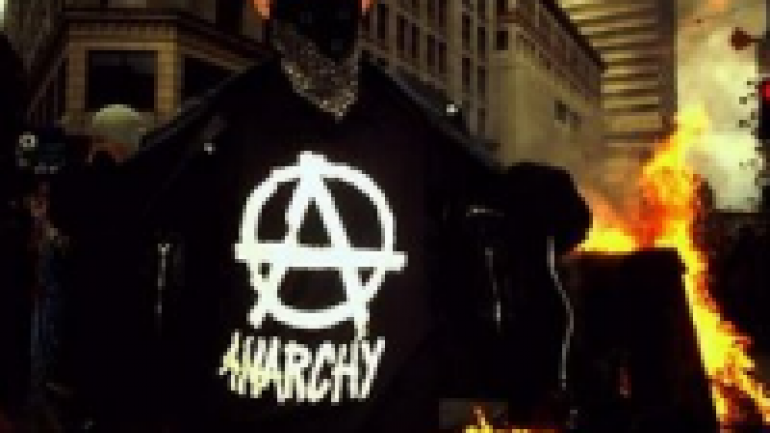A colorful and provocative survey of anarchism in America, the film attempts to dispel popular misconceptions and trace the historical development of the movement. The film explores the movement both as a native American philosophy stemming from 19th century American traditions of individualism, and as a foreign ideology brought to America by immigrants.
This documentary features rare archival footage and interviews with significant personalities in anarchist history including Murray Boochkin and Karl Hess, and also live performance footage of the Dead Kennedys.
“Anarchists are those who advocate the absence of the state, arguing that common sense would allow people to come together in agreement to form a functional society allowing for the participants to freely develop their own sense of morality, ethics or principled behaviour. The rise of anarchism as a philosophical movement occurred in the mid 19th century, with its idea of freedom as being based upon political and economic self-rule. This occurred alongside the rise of the nation-state and large-scale industrial capitalism, and the corruption that came with their successes.
Although anarchists share a rejection of the state, they differ about economic arrangements and possible rules that would prevail in a stateless society, ranging from complete common ownership and distribution according to need, to supporters of private property and free market competition.
For example, most forms of anarchism, such as that of anarcho-collectivism, anarcho-communism or anarcho-syndicalism not only seek rejection of the state, but also other systems which they perceive as authoritarian, which includes capitalism, markets, and private property. In opposition, a political philosophy known as free-market anarchism or anarcho-capitalism argues that a society without a state is a free market capitalist system that is voluntarist in nature.
The word “anarchy” is often used by non-anarchists as a pejorative term, intended to connote a lack of control and a negatively chaotic environment. However, anarchists still argue that anarchy does not imply nihilism, anomie, or the total absence of rules, but rather an anti-authoritarian society that is based on the spontaneous order of free individuals in autonomous communities, operating on principles of mutual aid, voluntary association, and direct action.”





Alll schemes to get rid of authority and return power to people end up imposing total control on everyone. It’s impossible for a large group of people to manage themselves independently in the first place. Someone takes the reins and Lords it over the rest.
And in the end you get totalitarianism.
Why is what we have now
The problem with Anarchy is your rogue elements. One bad egg can ruin an omellette, so to speak. This is why Governments & other powers tend to diffuse mobs because once the rogue element takes hold of the crowd, bad things tend to happen unless you have a lot of big animals such as elephants, horses, etc. to calm them. Anyone ever seen a lynching? Not fun especially for the person being lynched.
The gov would try to control the humans only to milk them
Yay. DK.
:3
I really like the colors here on your blog. did you design this yourself or did you outsource it to a professional?